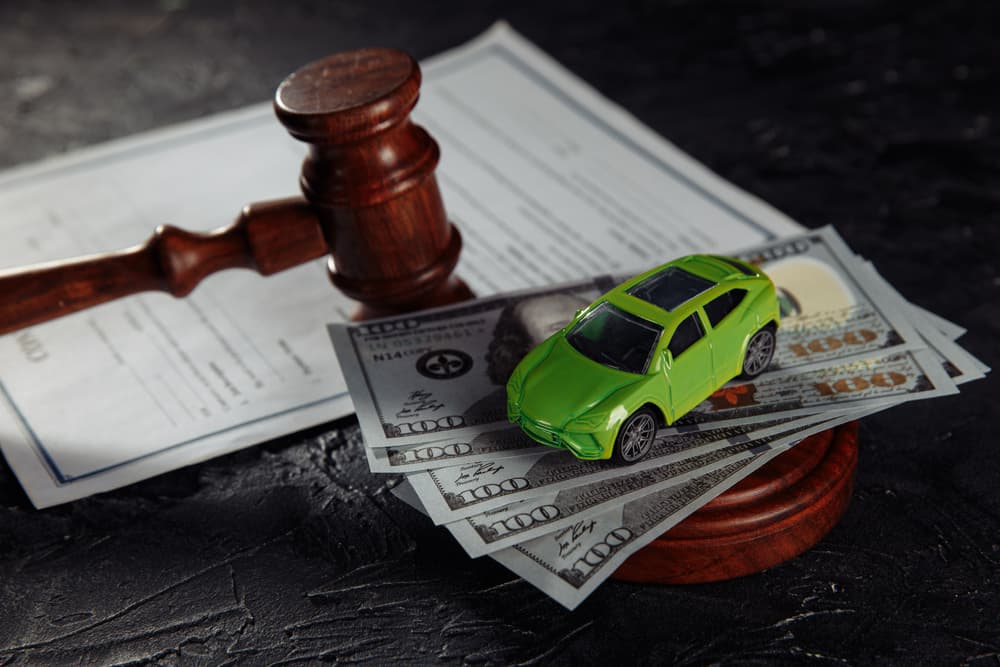Quick Answer
Georgia is not one of the 12 U.S. states that follow a no-fault insurance system.
No-fault insurance means that when a driver is hurt in a car accident, they need to file a claim with their own insurance company for their medical costs, lost wages, and other damages.
How does Car Insurance in Georgia Differ from No-Fault Insurance?
Georgia is a fault state, as most states in the US are. A fault state implies that when two drivers get into an accident, the driver who caused the accident is liable for the other driver’s damages.
If the at-fault driver in Georgia is has insurance (as required by law), it is the insurance company that is responsible for paying these damages.
Whether it’s a fender bender or a total highway wreck, car accidents always come with one question. Who’s fault was it?
At the end of the day, it doesn’t matter if you and the other driver both know who pulled the car crash trigger. Only state law can determine if someone can be “at fault” for a car accident—a.k.a., liable for someone else’s damages. For this reason, it may be helpful to consult a Georgia car accident lawyer.
If you own a car in the Peach State, it’s only responsible to wonder—is GA a no-fault state for car accidents? Let us steer you through the state’s laws and discuss Georgia’s auto accident policies.
Georgia—Fault or No-Fault?
The answer is simple—Georgia is an at-fault state. However, in practice, this law is a little more complicated.
An at-fault policy means that drivers are responsible for any financial payments that occur from negligent actions while driving. However, that doesn’t mean both drivers are equally at fault. In most cases, one driver will hold primary legal responsibility to cover losses—a term called liability. In Georgia, liability of a car accident could cover losses like:
- Any car damage or lost car value
- Medical expenses for injuries
- Residual pain or conditions caused by resulting injuries
- Lost income related to the accident
- Loss of enjoyment of life
- Anxiety or PTSD
- Property damage
How is Fault Determined in Georgia for Car Accidents?
Sometimes, a car accident has a clear victim. Other times it’s tough to even recount what happened. Luckily, state laws provide clear solutions to who’s at fault.
As an at-fault state, Georgia law has a modified comparative negligence model. This determines how much each driver shares liability. For example, if one driver is only 15% liable for the accident, the other driver’s insurance will pay 85% of all damages. The driver with a liability share over 50% is the only party to pay damages.
So, how is this breakdown made? Policies that determine accident liability in Georgia include:
- Traffic laws – If one driver broke a traffic law and the other did not, then the law-breaking driver is more at fault.
- Negligence – If one driver was displaying negligent behavior (eating, talking on the phone, playing overtly loud music), then they are more at fault
- Car maintenance – If the improper maintenance of one driver’s car created the auto accident (like broken lights or poor quality brakes), then they are more at fault
- Positioning – If a driver rear-ended another vehicle, they usually are considered more at fault.
- Erratic driving – If one driver displayed erratic behavior behind the wheel (like swerving lanes or stopping suddenly), then they are more likely at fault.
Of course, it’s hard to claim someone drove “erratically” based on a person’s word. That’s why Georgia residents are encouraged to file a police accident report after a car accident. These reports can gather documents and materials that prove liability, such as:
- Driver insurance information
- A crash event summary
- A crash scene diagram
- Driver statements
- Witness statements
- Officer opinion on the crash
- Any citations issued
If you experience a Georgia car accident with no police report, it will be harder to file claims and pursue a settlement.
Read More: Should I Hire A Lawyer For A Car Accident That Isn't My Fault. Well, It Depends.
Does Georgia Have No-Fault Car Insurance?
If you are a Georgia driver, you may wonder—is GA a no-fault state for car insurance? While super protective of your money, this type of insurance is not allowed in Georgia.
No-fault insurance covers your damages that occur in a car accident, whether you’re proven 100% or 0% liable. This could include some or all of your medical expenses, lost wages, or other losses. Georgia’s state laws ban this type of insurance, although they do allow collision and medical insurance to cover personal losses.
Minimum Requirements for Liability Insurance in Georgia
Like all states, Georgia also holds minimum coverage requirements for auto insurance. Every Georgia driver must have:
- Bodily injury liability insurance of at least $25,000 per person
- Bodily injury liability insurance of at least $50,000 per accident
- Property damage liability insurance of at least $25,000 per accident
Why is this necessary? Because drivers don’t actually pay damages—insurance companies do. Without auto insurance policies, drivers may be left penniless or unable to pay the damages they owe.
Does Georgia Have a Statute of Limitations for Car Accidents?
When it comes to car accidents in Georgia, moving fast (but not over the speed limit) is key. Otherwise, you may be racing against the statute of limitations for car accidents in Georgia.
A statute of limitations restricts the amount of time a plaintiff can bring a lawsuit following the incident in question. In Georgia, the statute of limitations for any car accident lawsuit is two years. After that, your legal case to receive damages as a driver is null.
However, this law does not apply to private insurance companies. Most insurance companies hold shorter statute of limitations for accident claims—even just a few days. Make sure to file a claim immediately after an accident.
Sources:
Blasingame, Burch, Garrard & Ashley, P.C. Is Georgia a No-Fault State? https://www.bbga.com/articles/auto/georgia-no-fault-state/
NOLO. Georgia Car Accident Laws and Statute of Limitations. https://www.nolo.com/legal-encyclopedia/georgia-car-accident-laws.html
Westmoreland, Patterson, Moseley & Hinson, L.L.P. Georgia Car Accident Liability & Fault Laws. https://www.wpmhlegal.com/accident-guides/georgia-car-accident-fault/
Know Your Claim’s Worth—and Settle It
Serious injury or no injury at all, move your case forward instantly from your phone.
Thank you for submitting your information.

About the author
Luke is a warm-hearted and highly skilled legal operations expert with an impressive 8-year track record in the personal injury field. As the Client Operations Lead at Mighty, he is dedicated to providing exceptional support, transparent communication, and genuine empathy to clients during their challenging journey. His expertise in streamlining processes and implementing cutting-edge technology makes him an indispensable ally for clients, case managers, and attorneys in their pursuit of justice.






